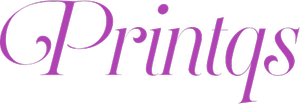No less than three information retailers had been leaked confidential materials from contained in the Donald Trump marketing campaign, together with its report vetting JD Vance as a vice presidential candidate. To date, every has refused to disclose any particulars about what they obtained.
As a substitute, Politico, The New York Instances and The Washington Publish have written a few potential hack of the marketing campaign and described what they’d in broad phrases.
Their selections stand in marked distinction to the 2016 presidential marketing campaign, when a Russian hack uncovered emails to and from Hillary Clinton’s marketing campaign supervisor, John Podesta. The web site Wikileaks printed a trove of those embarrassing missives, and mainstream information organizations coated them avidly.
Politico wrote over the weekend about receiving emails beginning July 22 from an individual recognized as “Robert” that included a 271-page marketing campaign doc about Vance and a partial vetting report on Sen. Marco Rubio, who was additionally thought-about as a possible vp. Each Politico and the Publish mentioned that two individuals had independently confirmed that the paperwork had been genuine.
“Like many such vetting paperwork,” The Instances wrote of the Vance report, “they contained previous statements with the potential to be embarrassing or damaging, reminiscent of Mr. Vance’s remarks casting aspersions on Mr. Trump.”
Whodunit?
What’s unclear is who supplied the fabric. Politico mentioned it didn’t know who “Robert” was and that when it spoke to the supposed leaker, he mentioned, “I recommend you don’t be interested in the place I obtained them from.”
The Trump marketing campaign mentioned it had been hacked and that Iranians had been behind it. Whereas the marketing campaign supplied no proof for the declare, it got here a day after a Microsoft report detailed an effort by an Iranian navy intelligence unit to compromise the e-mail account of a former senior advisor to a presidential marketing campaign. The report didn’t specify which marketing campaign.
Steven Cheung, a spokesperson for Trump’s marketing campaign, mentioned over the weekend that “any media or information outlet reprinting paperwork or inner communications are doing the bidding of America’s enemies.”
The FBI launched a short assertion Monday that learn: “We are able to affirm the FBI is investigating this matter.”
The Instances mentioned it could not focus on why it had determined to not print particulars of the inner communications. A spokesperson for the Publish mentioned: “As with every data we obtain, we have in mind the authenticity of the supplies, any motives of the supply and assess the general public curiosity in making selections about what, if something, to publish.”
Brad Dayspring, a spokesperson for Politico, mentioned editors there judged that “the questions surrounding the origins of the paperwork and the way they got here to our consideration had been extra newsworthy than the fabric that was in these paperwork.”
Certainly, it didn’t take lengthy after Vance was introduced as Trump’s operating mate for numerous information organizations to dig up unflattering statements that the Ohio senator had made about him.
A lesson from 2016?
It’s additionally simple to recall how, in 2016, candidate Trump and his staff inspired protection of paperwork on the Clinton marketing campaign that Wikileaks had acquired from hackers. It was widespread: A BBC story promised “18 revelations from Wikileaks’ hacked Clinton emails” and Vox even wrote about Podesta’s recommendation for making excellent risotto.
Brian Fallon, then a Clinton marketing campaign spokesperson, famous on the time how placing it was that concern about Russian hacking shortly gave option to fascination over what was revealed. “Similar to Russia needed,” he mentioned.
What to know concerning the 2024 Election
In contrast to this yr, the Wikileaks materials was dumped into the general public area, growing the strain on information organizations to publish. That led to some unhealthy selections: In some instances, retailers misrepresented among the materials to be extra damaging to Clinton than it really was, mentioned Kathleen Corridor Jamieson, a College of Pennsylvania communications professor on the College of Pennsylvania who wrote “Cyberwar,” a e book concerning the 2016 hacking.
This yr, Jamieson mentioned she believed information organizations made the precise determination to not publish particulars of the Trump marketing campaign materials as a result of they will’t make sure of the supply.
“How have you learnt that you just’re not being manipulated by the Trump marketing campaign?” Jamieson mentioned. She’s conservative about publishing selections “as a result of we’re within the misinformation age,” she mentioned.
Thomas Rid, director of the Alperovitch Institute for Cybersecurity Research at Johns Hopkins, additionally believes that the information organizations have made the precise determination, however for various causes. He mentioned it appeared that an effort by a overseas agent to affect the 2024 presidential marketing campaign was extra newsworthy than the leaked materials itself.
However one outstanding journalist, Jesse Eisinger, senior reporter and editor at ProPublica, recommended the retailers might have instructed greater than they did. Whereas it’s true that previous Vance statements about Trump are simply discovered publicly, the vetting doc might have indicated which statements most involved the marketing campaign, or revealed issues the journalists didn’t know.
As soon as it’s established that the fabric is correct, newsworthiness is a extra necessary consideration than the supply, he mentioned.
“I don’t suppose they dealt with it correctly,” Eisinger mentioned. “I believe they overlearned the lesson of 2016.”
___
David Bauder writes about media for the AP. Observe him at http://twitter.com/dbauder.
